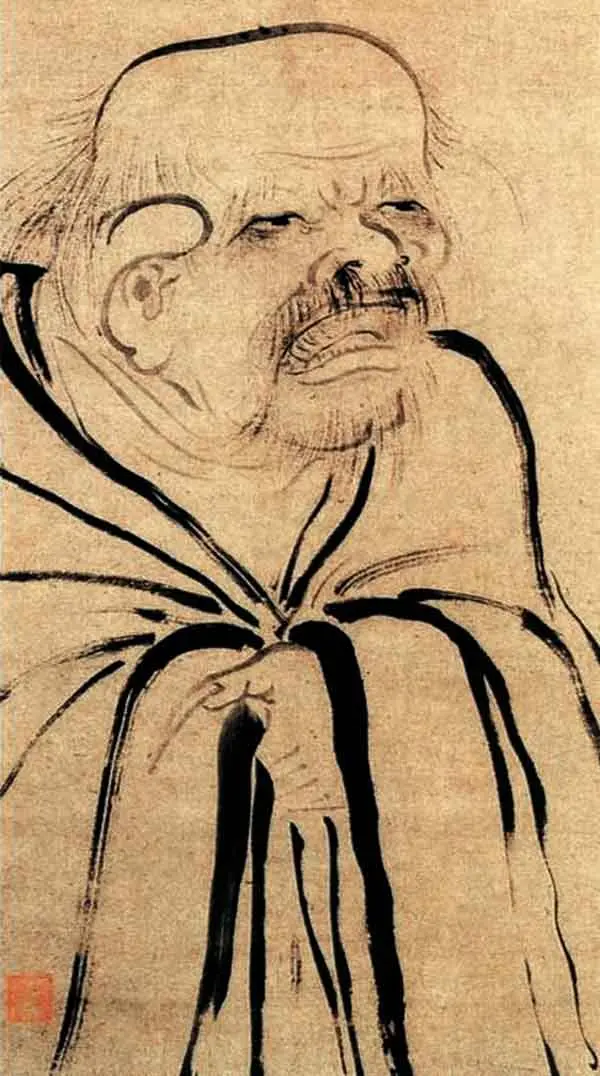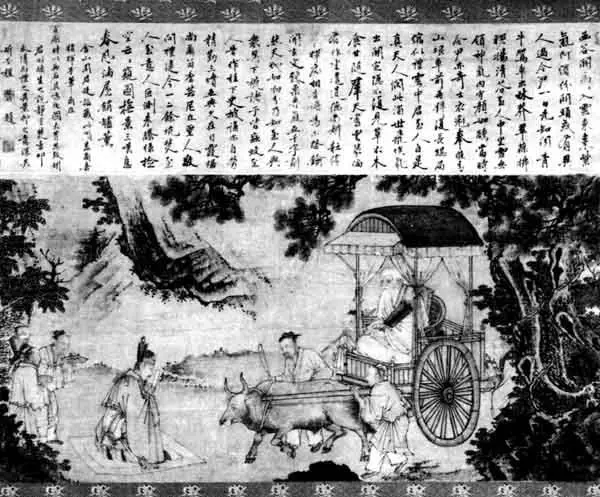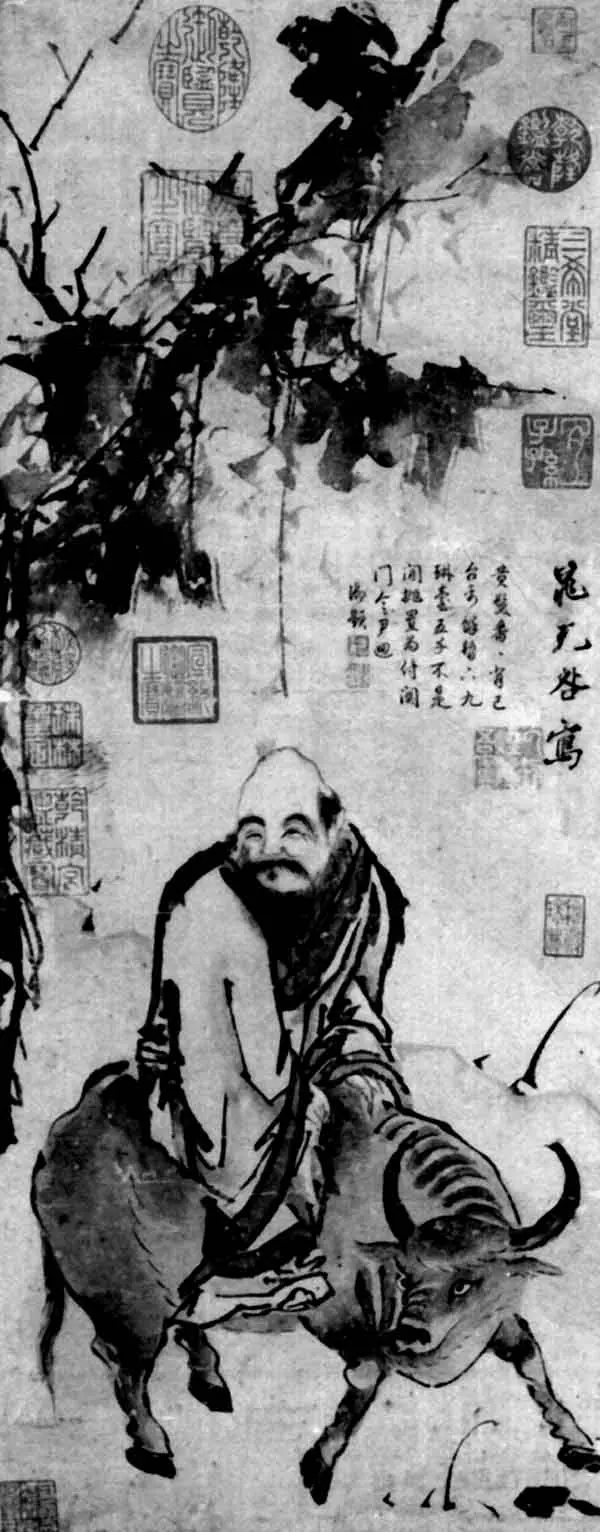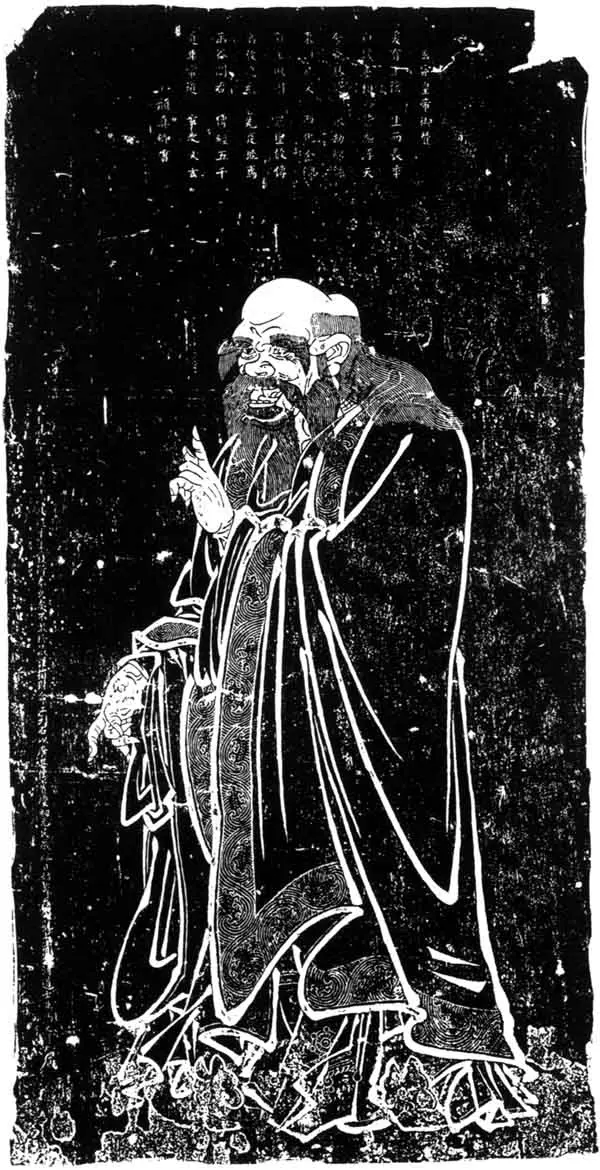|
Tao Te Ching
THE TAOISM OF LAO TZU
|
Lao Tzu
The First TaoistLao Tzu (Lao Zi) is the legendary writer of the Tao Te Ching, the old classic about Taoism. He is also regarded as the first of the Taoists, both in time and in importance. Still, nothing is know for certain about Lao Tzu — not even if he ever lived.
Chinese tradition makes Lao Tzu a contemporary of Confucius (Kung Fu Tzu or Kong Fuzi), the most famous of Chinese philosophers, and by far the most influential on the values and mentality of Chinese society. Confucius, whose existence is well documented, lived 551-479 BC.
The Senior Lao TzuBut Taoist tradition makes Lao Tzu the senior to Confucius, to the extent that he would have been born around 600 BC. This should be viewed with some skepticism, since it might just have been a way of claiming Lao Tzu's superiority over the other philosopher: In China, as well as in many other cultures, wisdom is regarded as increasing with age. Also, old ideas are respected much more than new ones.
Lao Tzu in HistoryThe Taoists are not without support for their claim of Lao Tzu's seniority, though. The most solid historical source to Lao Tzu and his life, also the oldest one, is Shih Chi, the book of Chinese history written by Ssu-ma Ch'ien around 90 BC. In this book, Lao Tzu is indeed reported to be a senior contemporary to Confucius.Shih Chi even describes a meeting between Lao Tzu and Confucius, where Lao Tzu is portrayed as both older and wiser, giving the latter a lesson that is almost humiliating. The name Lao Tzu is not likely to be genuine, though. It means Old Master and is more of an honorific title. Shih Chi states that his name was really Li Er. He was a public servant at the imperial archives, who late in his life left this high position in disgust, traveled to the West on a water buffalo, and wasn't heard from again.
Lao Tzu's Parting GiftLegend has it that before leaving, Lao Tzu rested at the house of a border guard named Yin Hse, who was delighted at listening to the wisdom of his guest. The guard said that Lao Tzu must write down his thoughts, for the benefit of mankind.Lao Tzu seemed indifferent to the idea, but when the guard woke up the next morning, Lao Tzu was gone, but he had left the Tao Te Ching text behind. Actually, the book was originally called Lao Tzu, like its legendary writer. That's still the name in use for it among many scholars, in China as well as the rest of the world.
The Age of the Tao Te ChingThere is little chance of dating Lao Tzu's life with any certainty. If Lao Tzu did exist and was the writer of the Tao Te Ching, he must at least have lived before the oldest version of the text we have discovered. That's around the year 300 BC, from which the Guodian manuscripts date.On the other hand, we may find older manuscripts in the future. Many Chinese scholars still insist that Lao Tzu and his text are from the 6th century BC. Some scholars don't regard the Tao Te Ching as a book written by one author, but as a compilation of proverbs and other bits and pieces, which may of course partly be of very old origin. The text is not autobiographical in any way, so it contains few clues as to its creation.
Lao Tzu Reveals HimselfBut there is one chapter of the Tao Te Ching, where the author seems to reveal himself, overcome by sentiment, sighing at the futility of trying to remain sane in an ignorant world. It's chapter 20, where Lao Tzu writes:
Other people have more than they need,
The common people see clearly,
Other people are occupied,
So, did Lao Tzu exist?Today, there is no way of knowing if Lao Tzu ever existed, and if he did, no way to make sure if he wrote the Tao Te Ching. Future archaeological discoveries may reveal the truth, but until then we can only speculate. So I do.Starting with the Tao Te Ching text, some things about it are obvious to me. Its structure — such as the many repetitions, the lack of logical order in the subjects treated, the rhymes, et cetera — strongly suggests a compilation of proverbs and such, probably to a large extent from oral tradition. That can make the origin of the Taoist philosophy very old, indeed, vastly preceding Confucianism and other Chinese philosophies. The advanced abstract ideas about Tao as a principle of the cosmos actually suggest an origin before the emergence of agrarian society, where myths and thoughts became more earthbound. But that doesn't necessarily exclude Lao Tzu, either as a major ancient source to the Taoist ideas, or as a kind of editor, making the first compilation of them in a book. I would put my vote on the latter possibility.
But the Tao Te Ching text is focused and clear all through, in a way that implies one mind, not many, and one idea of the book as a whole. Lao Tzu may have used material from sources old already at his time, but he sculpted them into a unifying principle, that of Tao, and showed stringency in applying it to all kinds of subjects and perspectives. Thereby, Lao Tzu created what was to be Taoism.
About CookiesMy Other Websites:I Ching OnlineThe 64 hexagrams of the Chinese classic I Ching and what they mean in divination. Try it online for free.
Qi Energy ExercisesThe ancient Chinese life energy qi (chi) explained, with simple instructions on how to exercise it.
Life EnergyThe many ancient and modern life force beliefs all over the world explained and compared.
Taoismen på svenska
Other Books by Stefan StenuddClick the image to see the book at Amazon (paid link).
The Greek philosophers and what they thought about cosmology, myth, and the gods. |
 Tao Te Ching
Tao Te Ching


 Tao Quotes
Tao Quotes Fake Lao Tzu Quotes
Fake Lao Tzu Quotes Cosmos of the Ancients
Cosmos of the Ancients Qi — Increase Your Life Energy
Qi — Increase Your Life Energy Aikido Principles
Aikido Principles Life Energy Encyclopedia
Life Energy Encyclopedia Archetypes of Mythology
Archetypes of Mythology Psychoanalysis of Mythology
Psychoanalysis of Mythology Stefan Stenudd
Stefan Stenudd